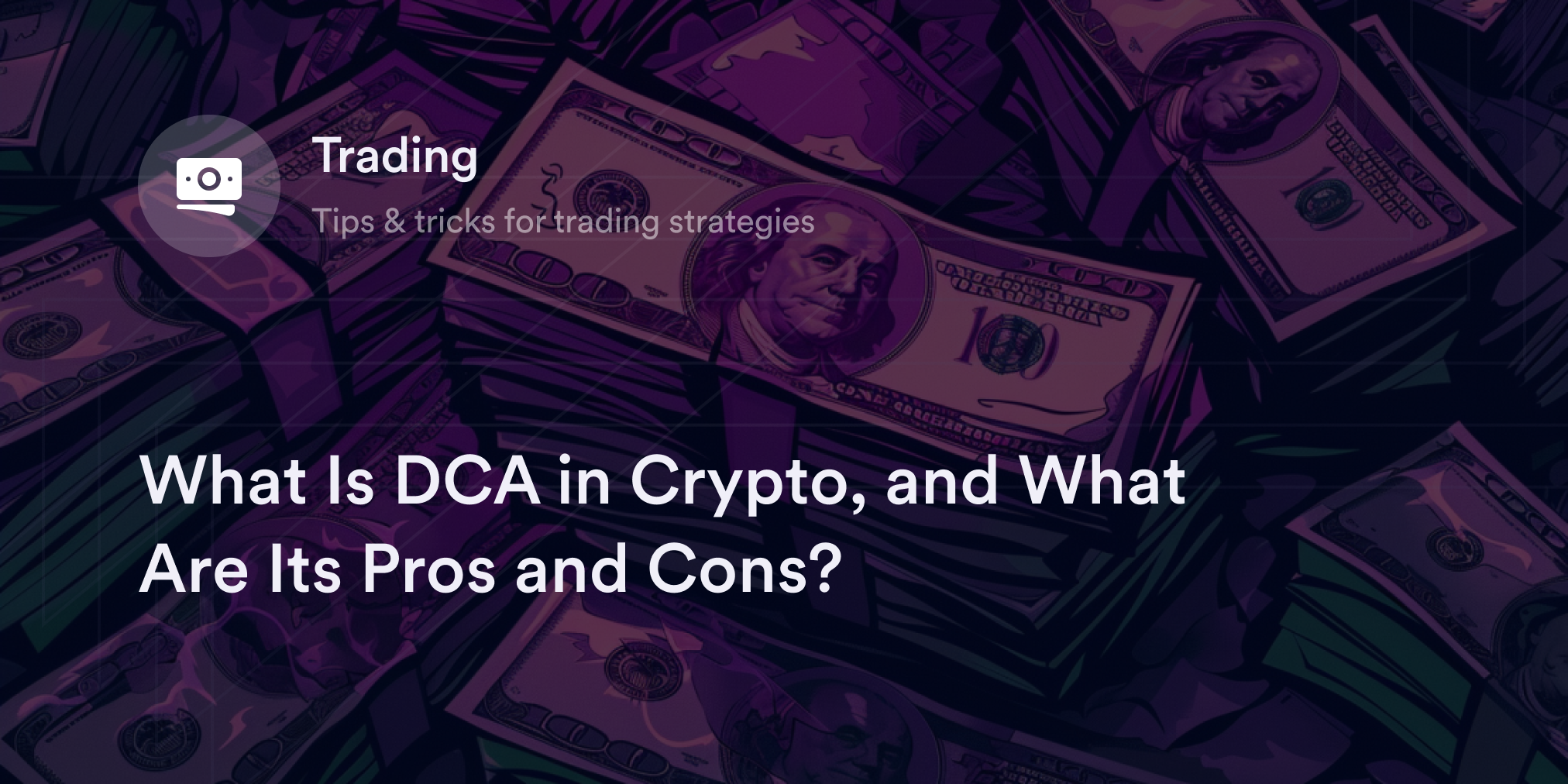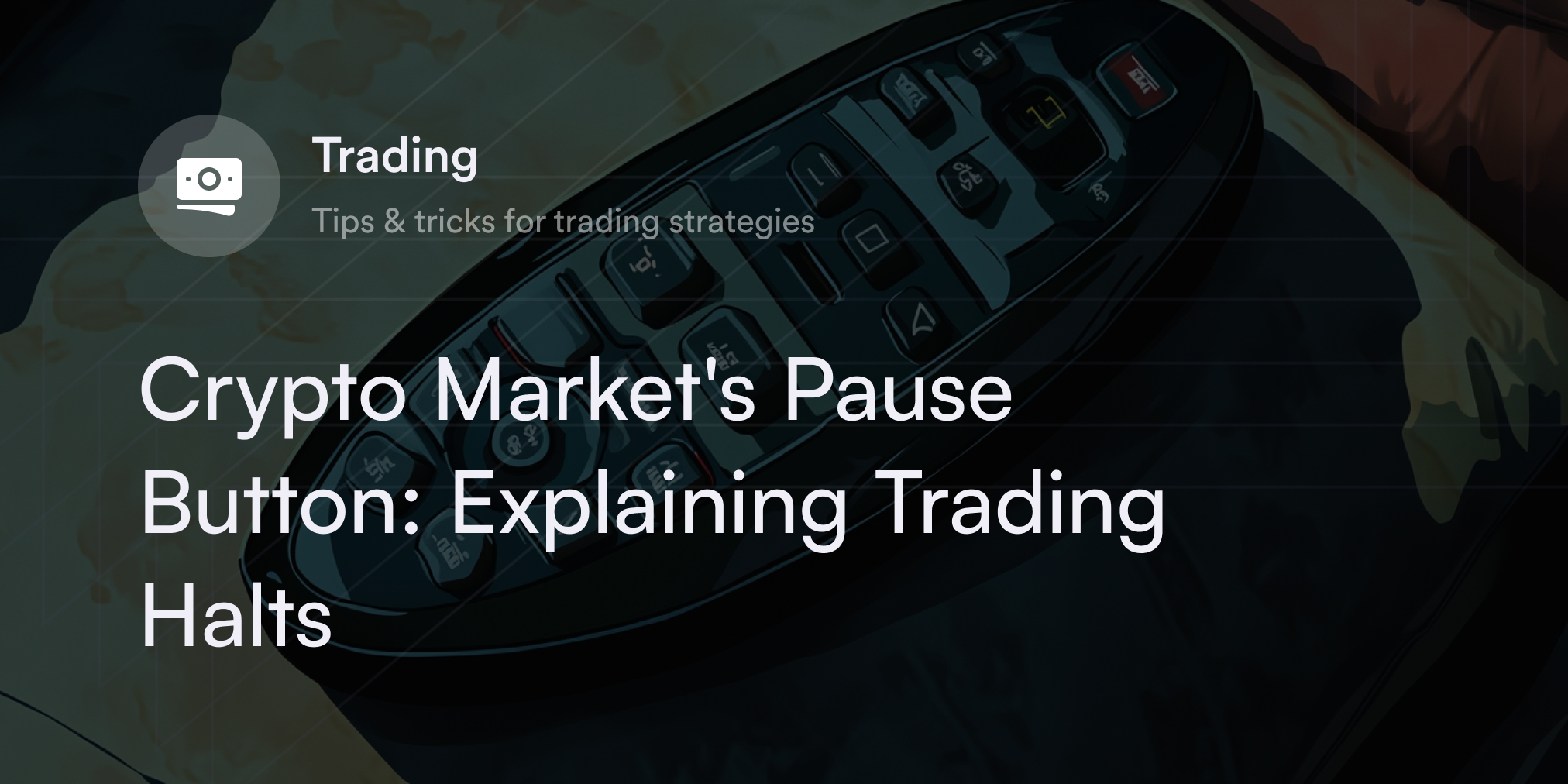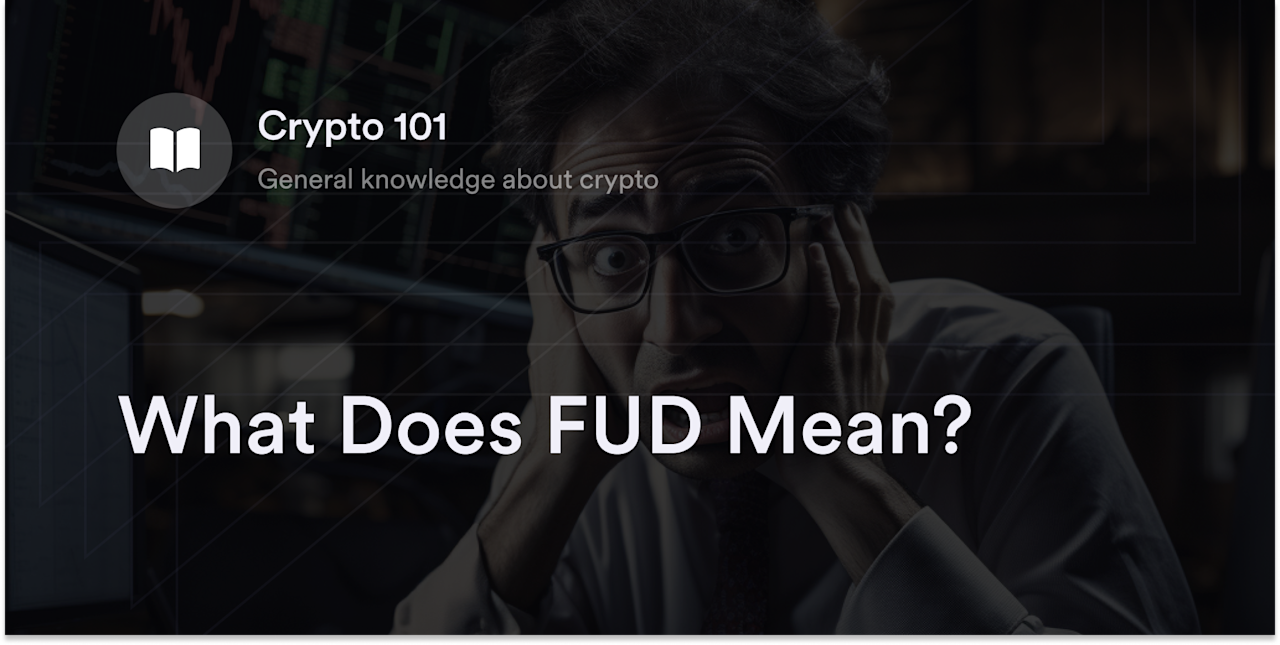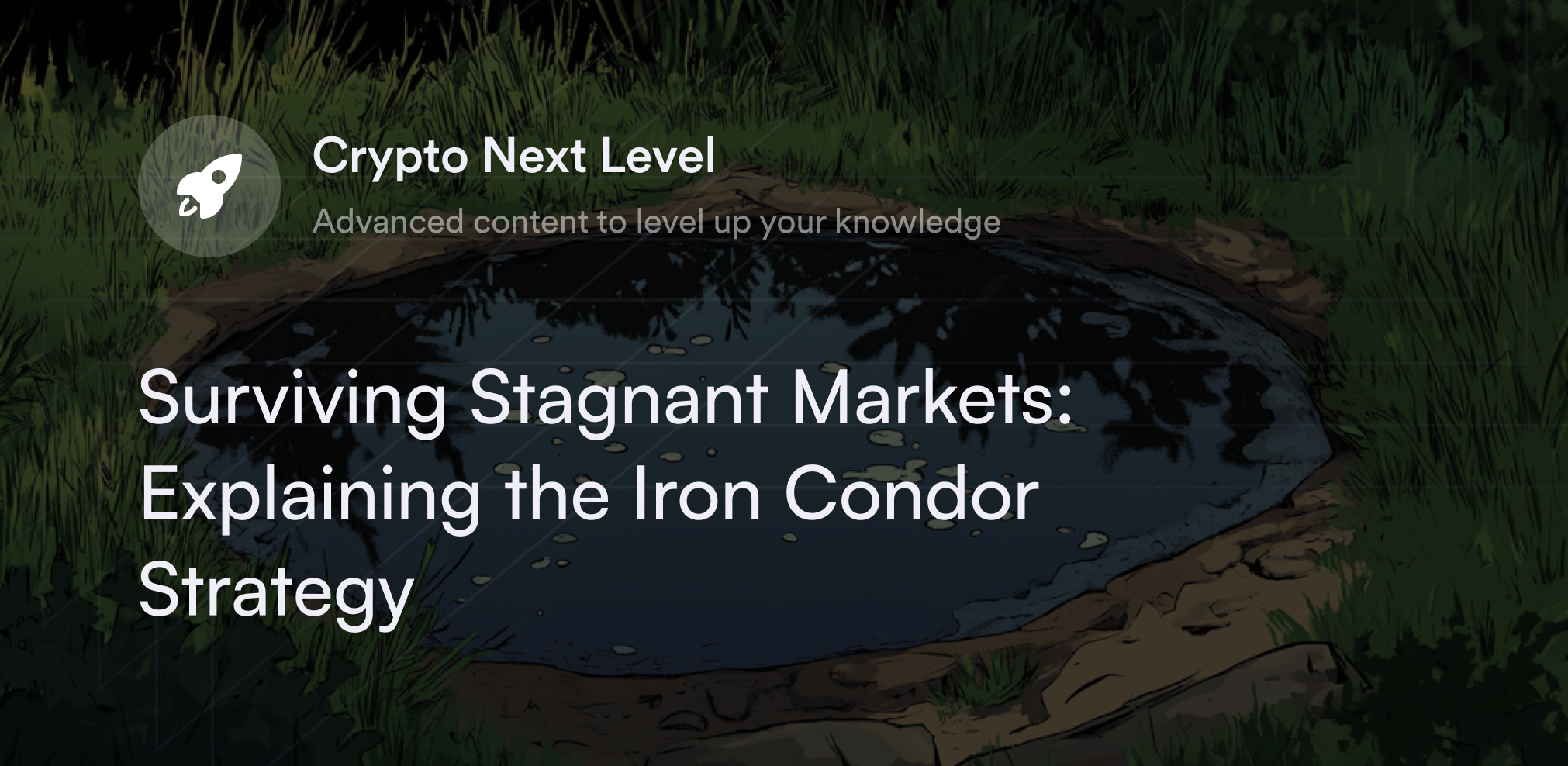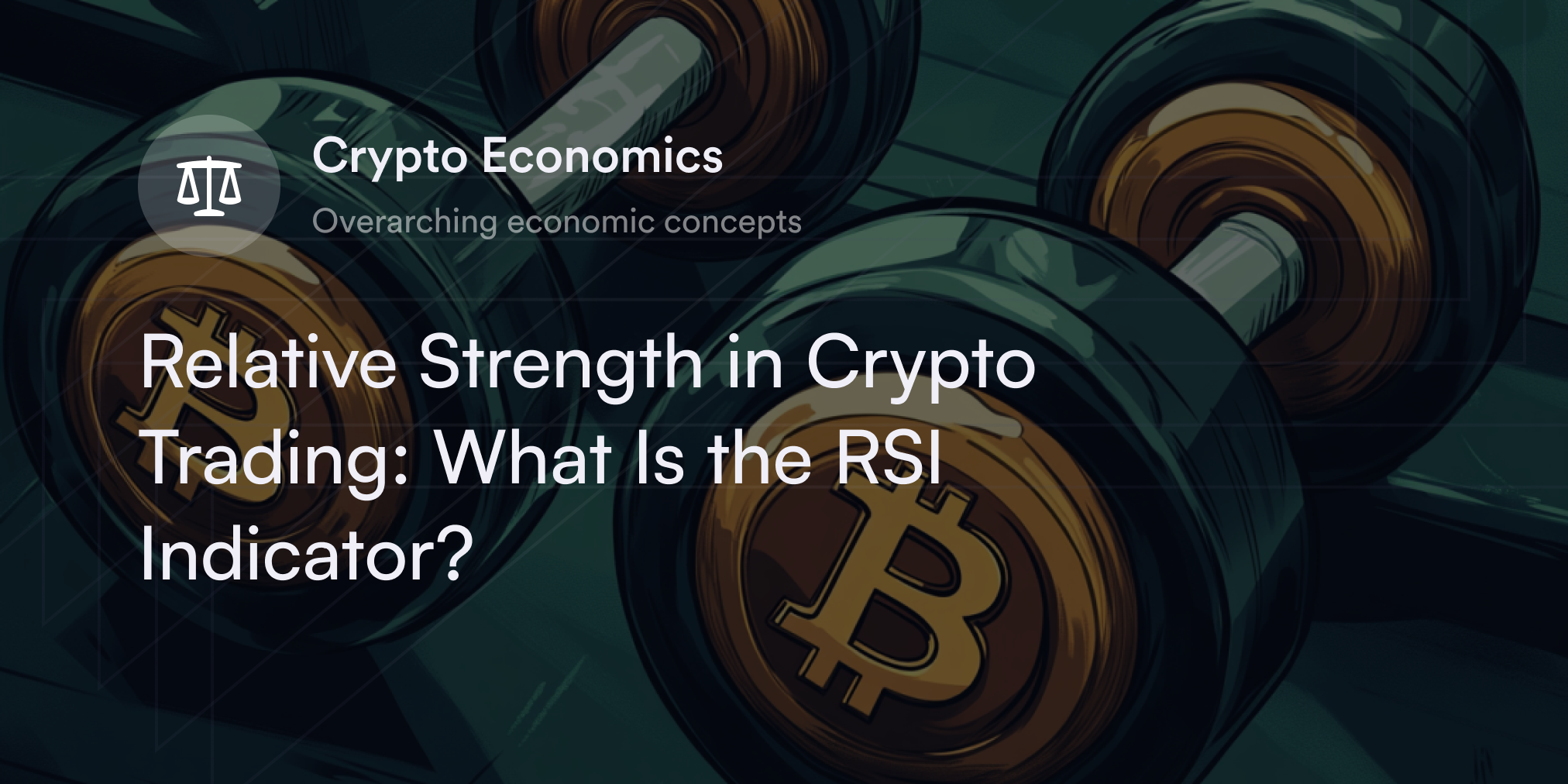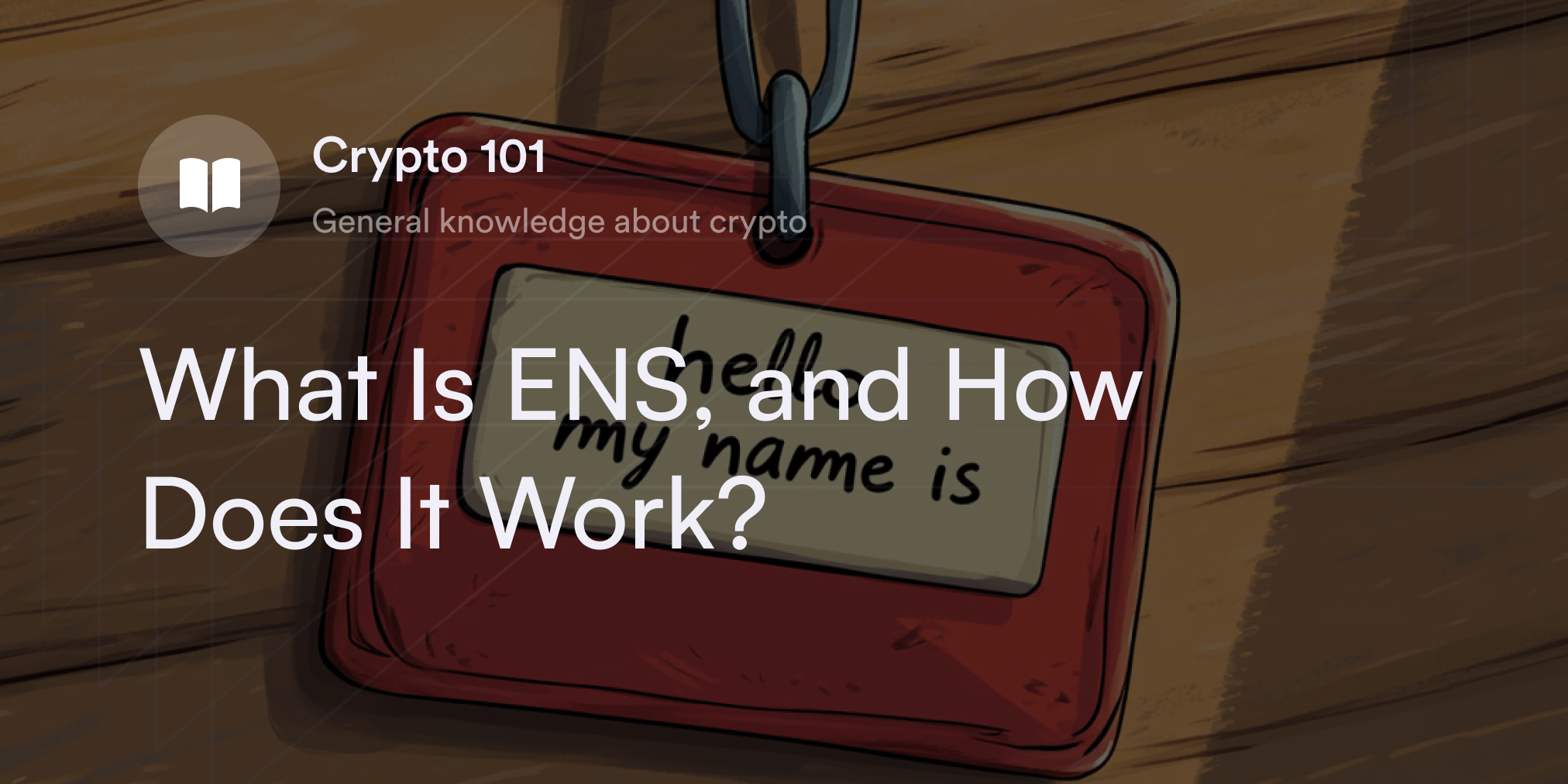
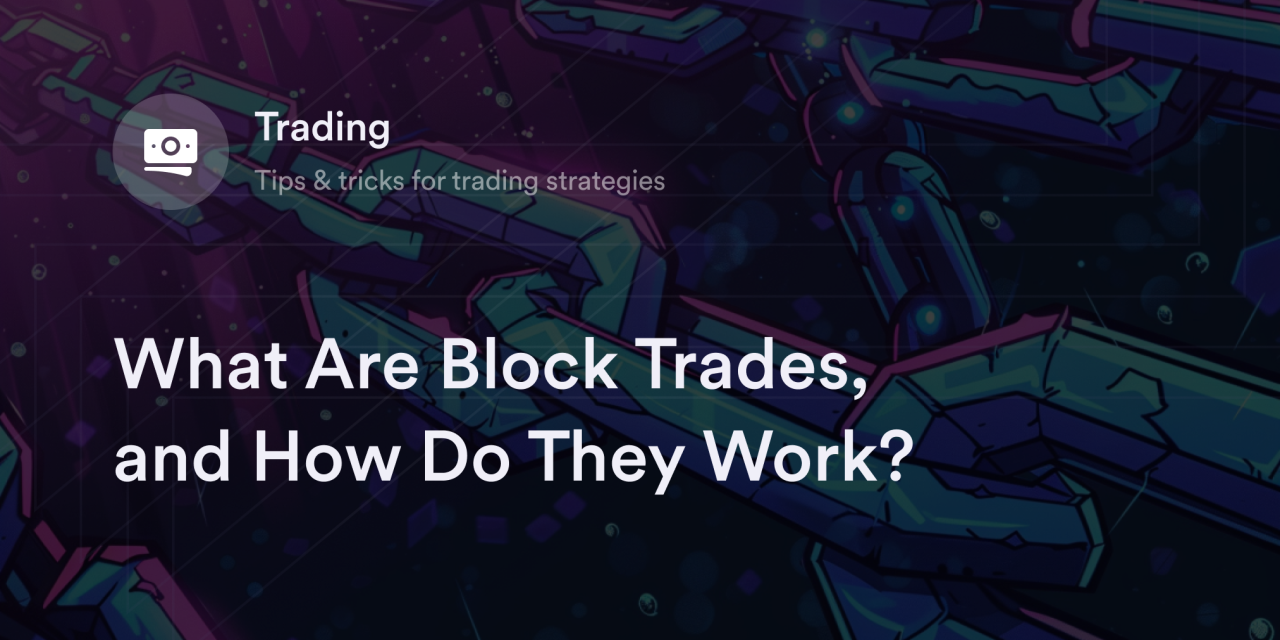

Traders often engage in significant transactions and purchase several assets priced at hefty amounts. Because of the exorbitant prices, they negotiate the sale privately to ensure an added layer of security and produce reduced effects on the market.
This is the essence of block trades, which are powerful tools large traders or individuals with heavy capital use for transactions.
In this guide, we’ll discuss what a block trade is, why it interests traders, and its pros and cons. We’ll also review if the trading strategy is legal.
What are block trades?
Block trades refer to the buying or selling of a large number of assets in a single transaction, typically executed outside of the open market, to minimize the impact on the asset’s price. These trades are usually conducted by institutions like mutual funds, pension funds, and large investment firms (aka block houses).
For example, many high-net-worth traders seek to scoop up several shares of a particular asset or security to boost their portfolios, wealth, and financial standing. However, they know that buying so many shares through a traditional exchange could put their privacy at risk and negatively impact the corresponding market, so they use block trade data with the help of large institutions to complete these transactions, keep their identities secure, and reduce adverse market effects.
How do block trades work?
Traders with extensive knowledge and experience leverage block trades to exchange assets. They also have unique relationships with their individual block houses.
To initiate a transaction, a trader contacts their block house and requests it to execute a large order discreetly and efficiently.
Next, the block market determines a fair price for the assets in question, taking into account the current market conditions, order size, and potential market impact. This process often involves negotiation between the block house and potential counterparties to agree on a price that reflects a premium or discount relative to the current market price, compensating for the transaction’s large size.
However, there’s also the option of breaking the transaction down into smaller orders to hide the initial size. Here, the trader gets access to specific portions of shares through individual sellers until the total is complete. This process is called an "iceberg order."
Finally, the block trade is executed through over-the-counter (OTC) markets or private transactions rather than through public exchanges to minimize market impact. The settlement process follows, where the assets are exchanged for payment according to trade terms.
Types of block trades
Block trades represent a critical avenue for executing large-volume transactions with minimal market disturbance. They come in various types, each offering a glimpse into the strategies and mechanisms traders and block houses employ to manage and execute substantial trades.
Here are three primary types of block trades:
Bought deal
In a bought deal, the institution managing a purchase buys the requested shares from a seller and then sells those shares to a separate purchaser at a higher rate. The institution keeps the difference between the sale prices, earning a profit.
Non-risk trade
This is when a managing institution engages in marketing efforts regarding certain assets to build interest among traders. The institution agrees on a set price for the assets with these buyers and receives a commission from the initial seller for their efforts in establishing demand.
Back-stop deal
In this situation, the managing institution doesn’t have an asset’s shares on its own books, although it still ensures a minimum selling price for the original asset provider. If the institution can’t find a buyer or enough buyers for all the assets, it purchases the ones remaining.
Pros and cons of block trades
Block trades are instrumental in facilitating significant transfers of assets with minimized market impact, but they come with their own set of advantages and disadvantages. Traders must weigh these pros and cons to navigate the complexities of large-scale trading, ensuring informed decision-making.
Pros
Reduced market impact: By executing large transactions outside the open market or through specialized mechanisms, block trades may help minimize the immediate impact on an asset’s market price. This can help traders looking to avoid causing significant price movements that could be detrimental to their trading strategy.
Improved liquidity: Block trades can provide liquidity to the market, especially for assets that may not be highly liquid. Sellers might be able to offload large quantities without significantly affecting the market, while buyers might be able to acquire substantial positions efficiently.
Conceals information: Block trades are quiet and done away from the prying eyes of standard exchanges, limiting volatility. These trades also allow transacting parties to conceal their identities.
Low transaction costs: As block houses conduct trades outside the jurisdiction of standard exchanges, they eliminate overheads like transaction fees.
Cons
Can veil market movements: Block trades can put retail traders at a disadvantage, as they typically don’t have the knowledge, connections, or capital to engage in such transactions.
Counterparty risk: In private negotiations and transactions, there is an increased risk related to the counterparty's ability to fulfill their obligations. This risk is especially pronounced in back-stop deals or bought deals where the financial stability of the counterparty is crucial.
Market reaction: While block trades are designed to minimize market impact, the announcement of such trades or leaks about their execution can lead to market speculation, potentially affecting the asset’s price and market perception.
Liquidity concerns: Although block trades are intended to provide liquidity, they can also remove a significant amount of liquidity from the public market, especially if the assets involved are not frequently traded. This can make it challenging for other market participants to execute transactions at their desired prices.
Upskill your trading knowledge with dYdX Academy
Trading volatile assets like crypto requires eligible traders to know the nuances of the market and their risk tolerance. dYdX Academy, our in-house education hub, includes dozens of guides on all things trading and crypto.
dYdX also offers eligible traders access to a decentralized platform with up to 20x buying power. Find out more details about our platform and products on our official blog, and eligible traders can start trading on dYdX today.
Disclosures
The content of this article (the “Article”) is provided for general informational purposes only. Reference to any specific strategy, technique, product, service, or entity does not constitute an endorsement or recommendation by dYdX Trading Inc., or any affiliate, agent, or representative thereof (“dYdX”). Use of strategies, techniques, products or services referenced in this Article may involve material risks, including the risk of financial losses arising from the volatility, operational loss, or nonconsensual liquidation of digital assets. The content of this Article does not constitute, and should not be considered, construed, or relied upon as, financial advice, legal advice, tax advice, investment advice, or advice of any other nature; and the content of this Article is not an offer, solicitation or call to action to make any investment, or purchase any crypto asset, of any kind. dYdX makes no representation, assurance or guarantee as to the accuracy, completeness, timeliness, suitability, or validity of any information in this Article or any third-party website that may be linked to it. You are solely responsible for conducting independent research, performing due diligence, and/or seeking advice from a professional advisor prior to taking any financial, tax, legal, or investment action.
You may only use the dYdX Services in compliance with the dYdX Terms of Use available here, including the geographic restrictions therein.
Any applicable sponsorship in connection with this Article will be disclosed, and any reference to a sponsor in this Article is for disclosure purposes, or informational in nature, and in any event is not a call to action to make an investment, acquire a service or product, or purchase crypto assets. This Article does not offer the purchase or sale of any financial instruments or related services.
By accessing this Article and taking any action in connection with the information contained in this Article, you agree that dYdX is not responsible, directly or indirectly, for any errors, omissions, or delays related to this Article, or any damage, injury, or loss incurred in connection with use of or reliance on the content of this Article, including any specific strategy, technique, product, service, or entity that may be referenced in the Article.
